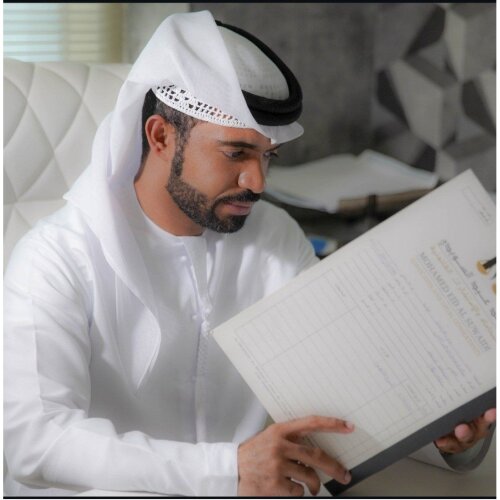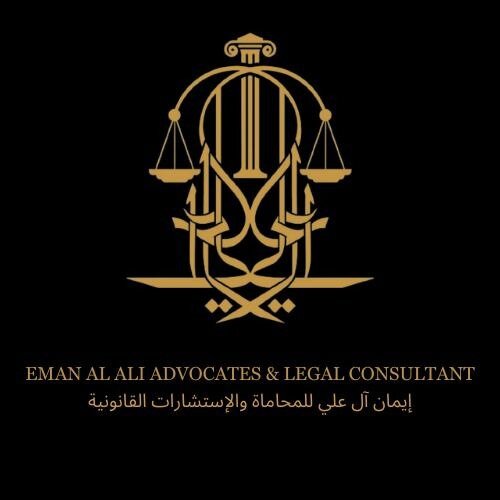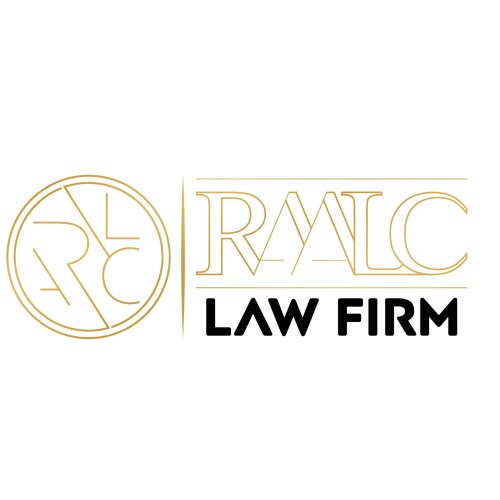Best Conveyancing Lawyers in United Arab Emirates
Share your needs with us, get contacted by law firms.
Free. Takes 2 min.
Free Guide to Hiring a Real Estate Lawyer
Or refine your search by selecting a city:
List of the best lawyers in United Arab Emirates

Mohamed Eid Al Suwaidi Advocates & Legal Consultants
30 minutes Free ConsultationAbout Conveyancing Law in United Arab Emirates
Conveyancing in the United Arab Emirates refers to the legal process of transferring property ownership from one party to another. This process typically involves the preparation, execution, and registration of contracts and documents related to the sale or purchase of real estate. Unlike in some other countries, conveyancing in the UAE often requires strict compliance with local regulations and the involvement of government authorities, most notably for property transactions within freehold and leasehold areas.
The UAE’s property market is dynamic and involves both residents and international investors. Each Emirate, especially Dubai and Abu Dhabi, may have its own specific property laws and conveyancing procedures. Ensuring that property transactions are legally sound and all documents are properly processed is vital to safeguarding the interests of all parties involved.
Why You May Need a Lawyer
Conveyancing in the UAE can be complex, as it often involves navigating legal requirements set by various governmental agencies. You may require legal help in the following situations:
- Purchasing or selling real estate, including residential, commercial, or off-plan properties.
- Transferring ownership between family members or business entities.
- Handling disputes that arise from property boundaries, contractual obligations, or ownership rights.
- Ensuring compliance with local property, residency, and financial regulations, especially as a foreign buyer or seller.
- Reviewing and drafting sale and purchase agreements or tenancy contracts.
- Addressing inheritance or succession issues involving property assets.
- Facilitating due diligence, including title searches and verification of encumbrances or liens.
- Managing mortgage, finance, and settlement processes.
A qualified lawyer can help you understand your legal position, avoid costly mistakes, and ensure that your property transaction stands up to regulatory scrutiny.
Local Laws Overview
Key aspects of conveyancing law in the United Arab Emirates include the following:
- Property Regulations: Each Emirate administers its property registration system and rules. For example, Dubai and Abu Dhabi have their dedicated land departments and registries, with separate procedures for freehold and leasehold properties.
- Foreign Ownership: Foreigners are permitted to own property in designated freehold areas. Outside these zones, property ownership for non-UAE nationals may be restricted or only available through leasehold arrangements.
- Transfer Process: Property transactions typically require the drafting of a Sale and Purchase Agreement or Memorandum of Understanding, obtaining No Objection Certificates (NOCs), settlement of outstanding service charges, mortgage clearance, and final registration with the land department.
- Registration Fees and Taxes: Buyers and sellers must pay various government fees, including registration and transfer fees. There is currently no stamp duty, but municipal and service charges may apply.
- Developer Rules: Off-plan property purchases are governed by specific regulations, including escrow laws to protect buyers' funds during construction.
- Dispute Resolution: Property disputes are settled through negotiation, mediation, or litigation in UAE courts, depending on the nature of the disagreement.
- Language of Documents: Official transactions are usually conducted in Arabic. English translations may be used, but Arabic versions prevail in case of inconsistency.
Legal advice is crucial for complying with these laws and ensuring your transaction proceeds smoothly and securely.
Frequently Asked Questions
What is conveyancing in the UAE?
Conveyancing is the legal process of transferring ownership of property from a seller to a buyer, including the preparation and registration of relevant legal documents.
Can foreigners buy property in the UAE?
Yes, but only in designated freehold areas. Foreign ownership may not be allowed outside these zones, depending on the Emirate’s laws.
Do I need a lawyer to buy or sell property in the UAE?
While it is not mandatory, hiring a lawyer is strongly recommended to ensure compliance with all legal requirements and to protect your interests during the transaction.
What are the typical steps in the conveyancing process?
The process usually includes signing a Memorandum of Understanding, obtaining relevant NOCs, settling all outstanding dues, transferring funds, and completing official registration at the land department.
What fees are involved in property transfers?
Expect to pay registration, transfer, and administrative fees to the land department, as well as real estate agent commissions and, potentially, legal fees.
What is an NOC in property transactions?
A No Objection Certificate (NOC) is a document issued by the property developer or property management company confirming there are no outstanding dues and that the property may be legally transferred.
Can property be owned jointly in the UAE?
Yes, joint ownership is permitted, typically by spouses, family members, or business partners, provided all parties’ names are registered on the title deed.
What happens if there is a dispute over property transfer?
Disputes can be resolved through negotiations, mediation, or by filing a case in the relevant UAE court. Legal advice should be sought immediately in such cases.
What documents are required for conveyancing?
Common documents include passports, Emirates IDs, sale agreements, title deeds, mortgage clearance certificates, and NOCs.
Can I appoint someone to act on my behalf in a property transaction?
Yes, you may grant a Power of Attorney to a trusted individual or your lawyer to carry out the conveyancing process on your behalf.
Additional Resources
If you need further information on conveyancing in the United Arab Emirates, consider reaching out to the following official resources and organizations:
- The Dubai Land Department (DLD)
- Abu Dhabi Department of Municipalities and Transport (DMT)
- Sharjah Real Estate Registration Department
- Ras Al Khaimah Municipality Department
- Real Estate Regulatory Agency (RERA)
- UAE Ministry of Justice
- Licensed local law firms with real estate expertise
- Accredited property management and brokerage firms
Next Steps
If you require legal assistance with conveyancing in the UAE, start by gathering all relevant documents related to your property transaction. Research and select a qualified lawyer or law firm with expertise in UAE property law. Schedule a consultation to discuss your situation, clarify any doubts, and map out the legal steps involved. Once you appoint a legal representative, they will guide you through the entire process, from due diligence to final registration.
Always ensure your lawyer is licensed in the relevant Emirate and has experience with the specific type of property transaction you are undertaking. This will help you navigate the conveyancing process more smoothly and minimize the risk of legal issues in the future.
Lawzana helps you find the best lawyers and law firms in United Arab Emirates through a curated and pre-screened list of qualified legal professionals. Our platform offers rankings and detailed profiles of attorneys and law firms, allowing you to compare based on practice areas, including Conveyancing, experience, and client feedback.
Each profile includes a description of the firm's areas of practice, client reviews, team members and partners, year of establishment, spoken languages, office locations, contact information, social media presence, and any published articles or resources. Most firms on our platform speak English and are experienced in both local and international legal matters.
Get a quote from top-rated law firms in United Arab Emirates — quickly, securely, and without unnecessary hassle.
Disclaimer:
The information provided on this page is for general informational purposes only and does not constitute legal advice. While we strive to ensure the accuracy and relevance of the content, legal information may change over time, and interpretations of the law can vary. You should always consult with a qualified legal professional for advice specific to your situation.
We disclaim all liability for actions taken or not taken based on the content of this page. If you believe any information is incorrect or outdated, please contact us, and we will review and update it where appropriate.
Browse conveyancing law firms by city in United Arab Emirates
Refine your search by selecting a city.
















